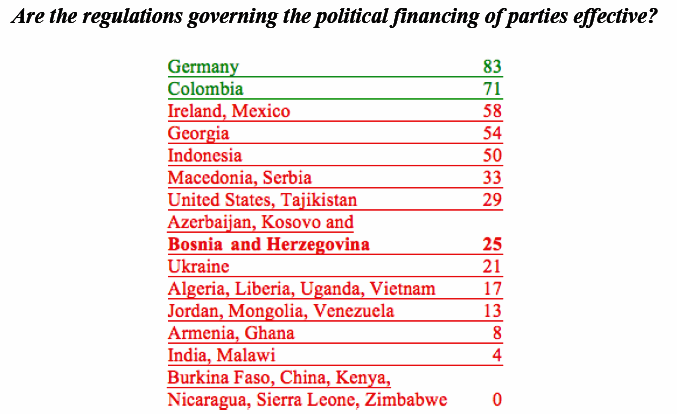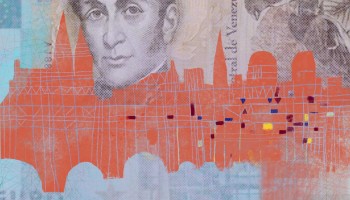BiH’s new anti-corruption agencyis not operational due to a lack of resources and staff, making it the only country in the region without a functioning anti-corruption agency. The country’s judiciary and the law enforcement are not independent from political influences, despite the massive support they received from international institutions over the past decade. The country has more than 2 million backlogged court cases – one for every two citizens. Prosecutors have avoided high level corruption cases involving officials and those that have been filed are dismissed on petty technicalities. There has been constant political pressure on the judiciary leaving no effective channels for combating corruption in BiH.

Serbia is also plagued by a lack of capacity to tackle corruption and a lack of government accountability. According to the report, “The State Audit Institution lacks the capacity to pursue violations by itself, and weak government responsiveness limits the scope of the State Audit Institution’s reports.”
However, “In Serbia, new regulations on financing of political activities improve the control and monitoring authority of the Anti-Corruption Agency and offer whistleblowers protection. Previously, whistleblowers were discouraged from reporting cases of corruption by the fear of recrimination and lack of government protections.”
GI points out that even though non-governmental agencies are now more involved in policymaking than in the past, cooperation with the government institutions often depends on personal connections.
Macedonia’s greatest weakness in the fight against corruption is a lack of freedom of expression in the media. International and local organizations, such as the Journalists’ Association in Macedonia, Amnesty International and the Organization for Security and Co-operation in Europe, expressed their concerns over this issue.
“To avoid jeopardizing their organizations’ revenue streams, some media owners and editors practice self-censorship and avoid certain news and topics. As a result, media coverage tends to cast the party in power in a more favorable light than the opposition” the report states.
Kosovo has made some progress in its election process, though much room for improvement remains. The report praised Kosovo for the “exercise of judicial review on the role and election process of the president affirmed institutional capacity to exercise checks and balances.”
Rather than evaluating the extent of perceived corruption in each country, the Global Integrity (GI) report assesses the success of anti-corruption efforts in each country.
The report analyzes accountability mechanisms and transparency measures employed in each country, through 32 “integrity indicators” and journalistic reports on corruption. This analysis highlights gaps in the system that are particularly susceptible to corruption, such as government accountability and transparency, including “conflicts of interest regulations, freedom of the press, and law enforcement accountability.”
“The country assessments that comprise the Report offer among the most detailed, evidence-based evaluations of anti-corruption mechanisms available anywhere in the world,” said Nathaniel Heller, Global Integrity’s Executive Director. GI’s work provides “policymakers, activists, and citizens alike with the information to understand the governance challenges unique to each country and to take action.”
“We remain deeply concerned by the lack of progress globally on effectively regulating the flow of large sums of private money into the elections process in many countries,” said Heller.
According to the report, many anti-corruption agencies are not independent from the very governments that they were set up to monitor. Political financing remains the top corruption risk around the globe. The work of the anti-corruption agencies is often heavily politicized, and they don’t have the capacity to do their work effectively, says GI.
The report notes that in 29 of the 32 countries examined, “government bureaucracy is considered an extension of the ruling party or is routinely utilized for partisan purposes.” With the exception of the U.S. and Ireland, the separation of public resources from the activities of political parties is not sufficient.
The Global Integrity Report is the work of over 100 journalists and researchers. GI collaborates with over 1,300 contributors and partners worldwide, among them regional partners of the Organized Crime and Corruption Reporting Project (OCCRP), such as the Center for Investigative Journalism (CIN) in Sarajevo, Bosnia and Herzegovina.





